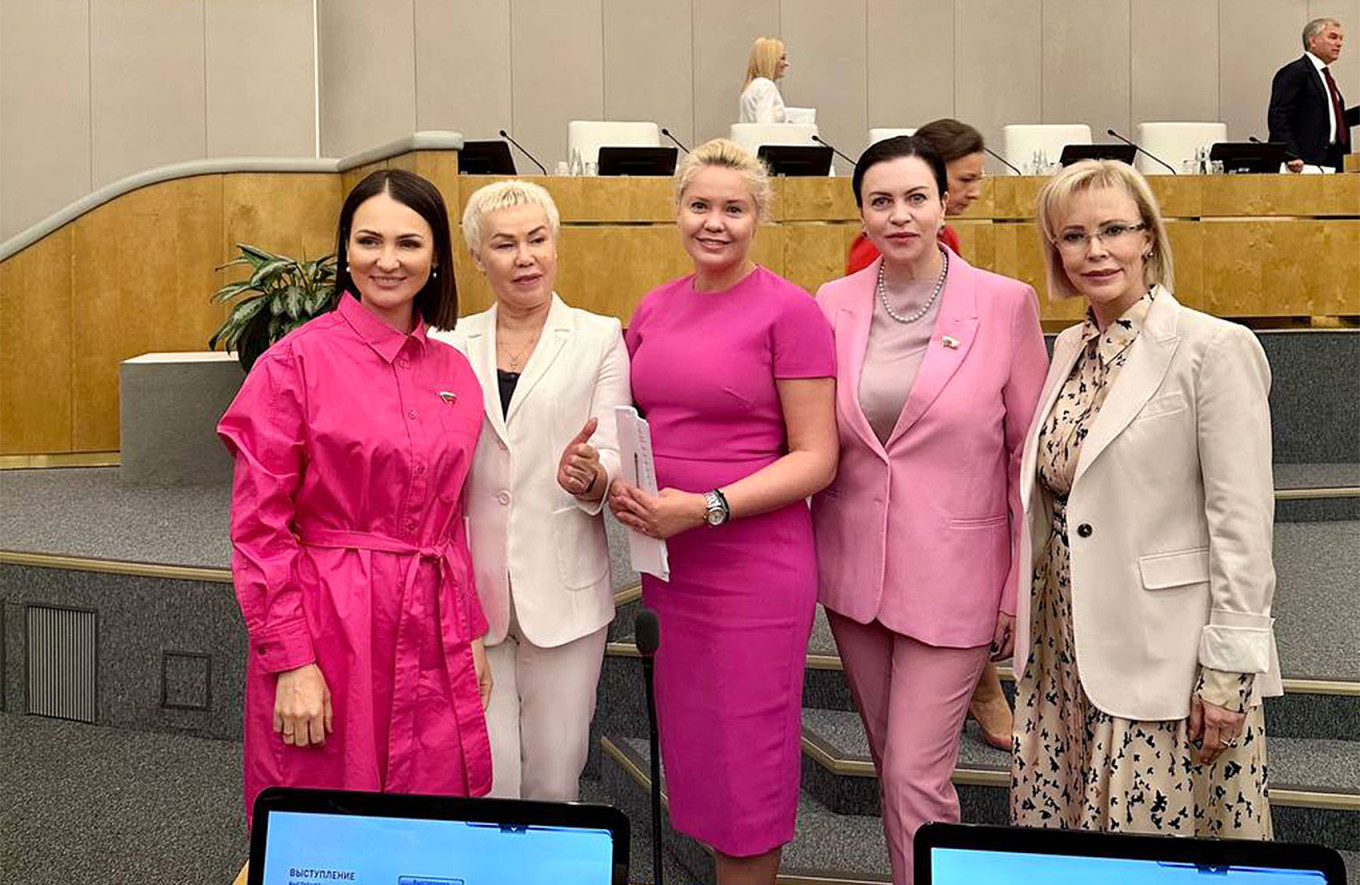MOSCOW — Vladimir Shushvalov would stop at nothing to see “Barbie.”
Since the Hollywood film based on the iconic toy doll will not be shown in Russian cinemas, Shushvalov spent nearly 30,000 rubles ($335) to fly from Moscow to Astana, Kazakhstan for its premiere there last week.
“I absolutely adore movies,” the 21-year-old student told The Moscow Times. “I’m talking about the major premieres of the year. I couldn’t wait for all these films and thought, ‘Why not go to Kazakhstan?'”
“Barbie” in particular caught Shushvalov’s eye with its bright, colorful trailers and what he called an “unconventional approach” to telling the doll’s story.
“I couldn’t quite grasp what the movie might be about from the trailer. It’s always exciting when you have no idea what to expect,” Shushvalov said. “And who would have thought they would make a movie about Barbie just four years ago?”
“Barbie,” which is one of this summer’s blockbuster hits alongside “Oppenheimer,” will not premiere in Russia after major Hollywood studios decided to suspend their film screenings in the country in response to Moscow’s full-scale military offensive on Ukraine.
But that hasn’t stopped Russians like Shushvalov from embracing the global pop culture phenomenon that is “Barbie.”
The Rovesnik bar, a popular hangout for Gen Z Muscovites, hosted a Barbie-themed party where attendees could get their hair and makeup done before taking photos with cardboard cutouts of Margot Robbie and Ryan Gosling — the main stars of the film.

Guests were asked to adhere to the dress code, described as “Barbiecore,” which entails dressing up in the style of Barbie Land characters.
“Barbiecore is the new black,” one user wrote in the comments under the bar’s Instagram post about the party.
Yekaterina Sukhobrus, who works for a YouTube channel, said that she marked her calendar for the Rovesnik party two weeks in advance. Over the past six months, Sukhobrus said she has splurged on pink clothes, and even changed her Telegram profile picture to an image of Barbie.
Even if she cannot see the film at the cinema, the pink outfits have come in handy.
“I’m a meme-person who picks out outfits for movies. I had chosen ideas for what to wear to ‘Barbie,’ what to wear to ‘Oppenheimer’,” she said.
“But now it looks like I’ll be sitting at home in these outfits and watching leaked pirated versions of the movies… and going to parties. What else can we do?”
Sukhobrus noted that men, too, had gone to the Barbie-themed party at Rovesnik wearing pink and with glitter on their faces.
She called it an “island of freedom amid all the new laws” — referring to recent legislation banning displays of LGBT lifestyles in the media and prohibiting gender reassignment.
Another popular spot for Barbie fans has been OMG Coffee Company, a Moscow cafe seemingly engineered for taking Instagram-worthy photos. The cafe launched a new Barbie menu dedicated to “all the princesses of this city,” with items including a dessert named “I’m a Barbie Girl,” a burger called “Barbieque,” and even pink cheese.
Restaurant manager Aman Arustamov said that despite the movie not being officially released in Russia, over 300 people came to the restaurant on the day after “Barbie’s” premiere to try out its “pink” menu and take pictures at its life-sized doll box.
“The cafe’s style is designed in such a way that [it looks like] we have a Barbie house. So even if we skip the movie premiere itself, we still feel like we are in Barbie’s world,” Arustamov told The Moscow Times.
In Russia’s lower house of parliament, the State Duma, some women lawmakers from the ruling United Russia party attended a session dressed in pink, which social media users linked to the “Barbie” premiere.

On Russian-speaking Twitter, a debate broke out over a tweet in which one Russian user said they wanted to go to Georgia to see “Barbie” with Georgian dubbing — where, instead of “Hi Barbie,” the characters say “Gamardzhoba, Barbie.” Users criticized the tweet as “imperialism.”
Shushvalov, who booked his flight to Astana four days before the film’s release, said that Kazakh taxi drivers and workers at the cinema box office were surprised to hear his story.
“Everyone was amazed, especially when taxi drivers found out the price of the plane tickets. And everyone asked what kind of movie it was, and why they don’t show it here [in Russia],” said Shushvalov.
Those who cannot travel to another country to see the movie are conveying their emotions with memes:
“Me watching how foreigners go to see ‘Barbie’ and ‘Oppenheimer’.”
Last year, Russian film distributors found a way to keep screening foreign movies, albeit illegally, by obtaining digital copies of movies shown in Kazakhstan via the Telegram messaging app without permission from the copyright owners.
Through this illicit scheme, Russians were able to see major releases like “Fast X,” “Spider-Man: No Way Home” and “Avatar 2” in theaters despite the studios’ exit.
Earlier this month, the Vedomosti business daily reported that “Barbie” and “Oppenheimer” would not be shown in cinemas via this scheme, as Hollywood companies have since figured out the system of bootleg film distribution in Russia.
In a column for the Wonderzine women’s news website, Anna Filippova said that the biggest loss for Russian moviegoers is the experience of being in a packed theater with fellow fans.
“We’ll still watch the movie, but the experience of being in a packed hall with hundreds of strangers who share the same values and laugh at the same moments — that experience was taken away from us,” Filippova wrote.





